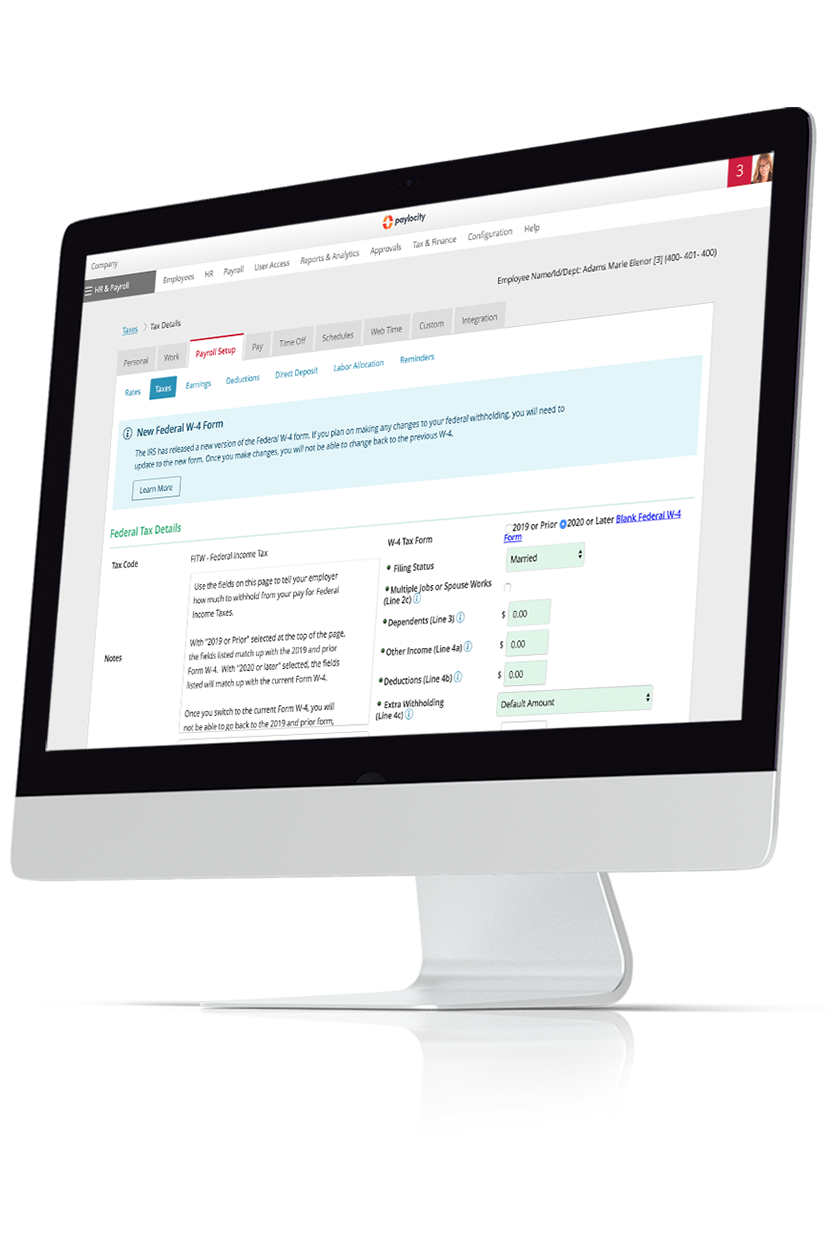Delaware Payroll Tax Facts
January 08, 2025
Having to comply with unique state taxes and wage laws can make processing payroll doubly daunting. Here’s everything you need to know about these rates and laws for the state of Delaware.

Delaware imposes a substantially higher minimum wage rate than the one required by the federal government in the Fair Labor Standards Act (FLSA). This is reflected in the higher rates for both tipped minimum wage and tip credits.
When it comes to processing payroll, Delaware-based organizations must handle the following taxes in addition to those required by the federal government:
- Personal Income (a.k.a. State Income Tax)
- State Unemployment Insurance (SUI)
- Local Taxes
The below information was last updated January 8, 2025. It is not intended as legal or tax advice.
Delaware Payroll Tax Rates
Delaware State Income Tax (SIT)
Delaware's SIT is progress, meaning it adjusts based on the income level of the employee paying the tax:
| Income Tax Bracket [Over X] - [But not over Y] |
2025 Income Tax Rate |
| $0 - $2,000 | 0.00% |
| $2,000 - $5,000 | 2.20% of excess over $2,000 |
| $5,000 - $10,000 | $66.00 + 3.90% of excess over $5,000 |
| $10,000 - $20,000 | $261.00 + 4.80% of excess over $10,000 |
| $20,000 - $25,000 | $741.00 + 5.20% of excess over $20,000 |
| $25,000 - $60,000 | $1,001.00 + 5.55% of excess over $25,000 |
| $60,000 or greater | $2,943.50 + 6.60% of excess over $60,000 |
|
Additional Delaware SIT Details |
|
|
Supplemental Withholding Computation |
Calculate the taxes owed for the employee's regular wages and the regular wages combined with supplemental wages. Subtract the taxes owed on the regular wages from the taxes owed on the combined wages to find the withholding. |
|
Valid Filing Statuses |
|
|
Exemptions |
|
|
Form W-4 |
Form DE-W4 |
|
Reconciliation Frequency |
Annual |
Delaware State Unemployment Insurance (SUI)
SUI provides unemployment benefits to eligible workers who are unemployed through no fault of their own (as determined by state law) and meet the state’s eligibility requirements.
|
Delaware SUI Tax Details |
|
|
Taxable Wage Base |
$12,500 |
|
Employee Subject to Tax |
No |
|
Rates for Experienced Employers |
0.30% - 5.60% |
|
Rates for New Employers |
1.00% |
|
Effective Period |
Calendar Year |
|
Voluntary Contributions Allowed |
No |
Delaware State Disability Insurance (SDI)
SDI benefits are funded by employees through mandatory payroll deductions from each paycheck. Delaware, however, doesn't require employers to collect an SDI tax.
Delaware Paid Sick Leave (PSL) Tax
The state of Delaware doesn’t require employers to collect PSL taxes, nor does the state have a program providing such leave to employees.
Delaware Paid Family and Medical Leave (PFML) Tax
Like SDI, Delaware's PFML program is funded via mandatory deductions and employer contributions. Employers register with the state's LaborFirst website and must first complete its identity proofing process. Eligible employees can begin submitting claims on January 1, 2026.
|
Delaware PFML Details |
|
|
Covered Employees |
Employed at least one year and for at least 1,250 hours with a single employer |
|
Covered Employers* |
All with 10 or more employees, though employers with 10-24 employees are only required to provide parental leave |
|
Amount of Leave |
6-12 weeks depending on the reason for use:
|
|
Leave Use Maximum |
12 weeks per year
|
|
Tax Rate |
0.80% (paid by employers, but employers can require employees to pay up to 50% of this tax):
|
| Wage Base Limit | $176,100 |
|
Wage Replacement |
Up to 80% of wages (up to $900 a week) |
| Acceptable Uses |
|
| FAQs | Delaware Paid Leave FAQs |
*Federal and seasonal employers (who shut down for one month or more) are exempt.
Delaware Local Taxes
In addition to the state-wide taxes mentioned above, the city of Wilmington also imposes two local taxes:
- Earned Income Tax (employees)
- Net Profits Tax (employers)
Miscellaneous Delaware Tax Information
Delaware Reciprocal Agreement(s)
Reciprocal agreements are when workers who live and work in different states are only required to pay taxes to the state where they live. Delaware currently has no reciprocal agreements with any other states.
This doesn’t mean, however, that interstate workers living in Delaware pay double. It’s federally illegal for two states to tax the same income. In most cases, the employee’s work state will credit or refund them at tax time based on the taxes they owe their home state. If the tax rates differ, the employee must cover the difference.
Delaware Minimum Wage Rates
|
Wage Type |
Delaware Rates |
Federal Rates |
|
Minimum Wage |
$13.25 |
$7.25 |
|
Tipped Minimum Wage |
$2.23 |
$2.13 |
|
Actual Tip Credit |
$11.02 |
$5.12 |
Paying Payroll Taxes in Delaware
Delaware Employer Registration
The agencies below can help with your state-based employer registration, including best practices, account numbers, and unemployment information. Contact the Department of Revenue for withholding tax topics and the Department of Labor for unemployment tax topics.
|
Registration Details |
Department of Revenue |
Department of Labor |
|
Phone |
(302) 577-8778 | (302) 761-8482 |
|
Online Registration |
Delaware One Stop Registration Page | |
|
Registration Instructions |
Online registration is required. Account numbers will be issued during the online process. Separate account numbers for each tax type will be issued under the combined registration. |
|
|
Employer Self-Service Login |
Delaware Taxpayer Portal Login Page | |
Additional Delaware Payroll Tax Resources
- Department of Revenue Employer's Guide
- Department of Revenue Forms Library
- Department of Labor's Employer Resources
- Department of Labor's Paid Leave Site
This information is provided as a courtesy and may be updated at any time. It is not intended as legal or tax guidance. If you have questions or concerns, we encourage you to seek the advice of a qualified CPA, tax attorney, or advisor.

Get Taxes Done Right, Without the Stress
We know there's a lot that goes into preparing and filing payroll tax forms. Save time and get support from our expert team. As a Registered Reporting Agent with the IRS, we can help prepare and file all the necessary forms you need to remain compliant - even in the face of changing legislation. Learn more here.